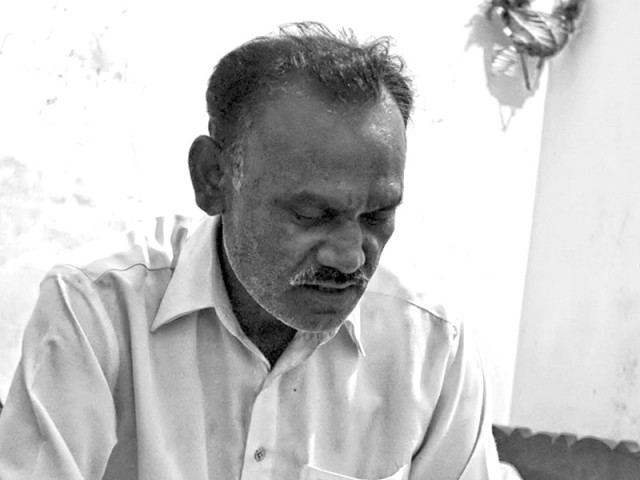Mortuary attendants - part 1/2: The caretakers of the dead
As city witnesses bouts of violence, Saleem’s workload, like his father’s before him, increases with the death...

Karachi descending into a gory urban war zone becomes a statistic for most observers: how many dead, and where? For Saleem Masih, a post-mortem specialist, such a scene functions as a call to arms. A blood-soaked city means a work-filled day and night.
Working as a mortuary attendant for the last 16 years, his job is to preserve the evidence of injuries to victims, irrespective of the cause of death. It could be poisoning, an accident, homicide or a bomb blast. Whenever a body turns up on his table, he must work with the precision of a surgeon and the cold eye of an undertaker.
When Saleem digs his blade into a gunshot victim, his hand doesn’t shiver. He says he blocks out all his thoughts so that he can focus on his mission to retrieve the bullet. Although illiterate, he can tell you the names of each bone and organ in a human body like a top-of-the-class medical graduate.
“Everything I learnt about this job, I learnt it from my father,” he says as he uses a bone-cutter to slice through the ribs.
Between father and son, Inayat Masih and Saleem, there is at least 50 years of post-mortem experience. Asked how many post-mortems they’ve done, they look at each other with a bewildered expression and say “hundreds … or maybe thousands.”
Because of the nature of their work, a grim and low-paying profession, both men have a unique insight into the unrelenting violence in Karachi over the decades.
Inayat and Saleem are Christians. While the 70-year-old father retired from Civil Hospital after 40 years of service in 2001, his middle-aged son Saleem continues to work like his dad as a mortuary attendant at Jinnah Hospital.
Although by law a qualified doctor and designated medico-legal officer (MLO) is supposed to carry out post-mortem examinations, it is common knowledge that “none of the doctors like to get their hands dirty” when it comes to cutting up bodies and looking for forensic evidence that can be held up in the courts.
The job is left to the mortuary attendants, while all the MLO does is sign or alter the findings made by them.
The septuagenarian Inayat, who now lives a retired man’s life with his three sons, grandchildren and wife at a modest house in Akhtar Colony, said he was only 18 when he had joined the profession in 1960. “At that time my salary was Rs56.” By the time he retired, he was being paid around Rs 3,500 a month. His son, after more than 15 years of service, earns a bit better than him and gets about Rs15,000.
These are meagre sums for low-grade government employees whose common working hours last anywhere between 12 to 15 hours – at times more – depending on what kind of chaos is unfolding in the city.
Inayat said that when he joined the profession, he was taught everything about post-mortems by his Hindu ustaad (teacher) Bhaga. “Initially, I used to be scared but then I told myself that all heavenly books have said that when someone dies, they come back alive only on the day of judgment, not before that,” he said.
Saleem said he was also afraid when he started out until his father chose a unique method to take away his fears. “I put both his hands on the body and made him feel the dead,” the father explained as he smiled. “Since then, my hand stays steady when I’m busy in my work,” Saleem said.
But does this mean that they’ve become numb after witnessing so much horror on their mortuary slabs? “No. We are human too. We too have a heart. It pains to know that one human being can do something as grotesque as cutting another human being in pieces,” Inayat said. Emotion is present – it is just kept at a safe distance.
Published in The Express Tribune, April 29th, 2012.
You can read part 2 of this report here.



















COMMENTS
Comments are moderated and generally will be posted if they are on-topic and not abusive.
For more information, please see our Comments FAQ